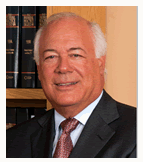Many people are entrusted with handling money or property for a company, religious organization, charitable foundation, educational institution, community group, or some other organization. If a person who has this responsibility steals or misappropriates this money or property, they can be charged with embezzlement. Embezzlement is generally not considered fraud or theft. The difference with embezzlement is that the embezzler was given permission to handle money or property on behalf of a business or organization. The embezzler then converts these assets into their control or possession.
Embezzlement can happen to any organization, but it most often occurs with small businesses. The specialty insurance company HISCOX conducts an annual survey called the HISCOX Embezzlement Study. This study was conducted among Chief Financial Officers, accountants, and controllers from around the country. The latest embezzlement findings that were released by HISCOX in November 2018 showed that the average embezzling incident cost $357,650. On average, only 39 percent of the funds were recovered. 39 percent of the survey’s respondents experienced more than one case of embezzlement during their career. Other findings include:
• 79 percent of the cases involved two or more people
• 70 percent of the cases were carried out for over a year
• 29 percent of the business had to lay off employees as a result of the embezzlement
• 26 percent of the business lost customers as a result of the embezzlement
This study also revealed who typically does the embezzling. On average, embezzlers have been with their company for eight years, they work at the management level, and they work in the accounting or finance departments.
There are many types of embezzling, but most involve discrepancies in billing. The most common forms of embezzling are:
• Cash embezzling, which involves withholding cash from a transaction
• Negotiable document embezzling, which involves forgery of official company checks
• Account credit embezzling, which involves setting up a loan for a fictitious borrower
• Embezzling delivered items, which involves putting received office equipment in a dumpster for an accomplice to pick up
• Wire transfer embezzling, which involves wiring company money to a fictitious client
• Computer embezzling, which involves altering a computer’s function to make payments to a fictitious client
Under Florida law, embezzlement is considered one of many types of property crimes and is prosecuted as either petit theft or grand theft. Theft that is classified as a misdemeanor is considered petit theft, while felonies are classified as grand theft. Theft of $300 or more is classified as grand theft and may qualify as a misdemeanor or felony depending on the dollar amount. Depending on the situation, strong legal representation can help to reduce the penalties for an embezzlement conviction.

Roy J. Kahn, with years of legal experience in a wide variety of criminal law, heads a “boutique” firm, which means that your attorney is Roy J. Kahn, not a paralegal. If you have been charged or are about to be charged with a crime—or if you have been contacted to be a witness in a federal grand jury case, you need a qualified defense. You should consult with an attorney immediately and know that you have a right to make no statement until you have consulted with an attorney To contact Mr. Kahn, he can be reached at 305-358-7400.


Recent Comments